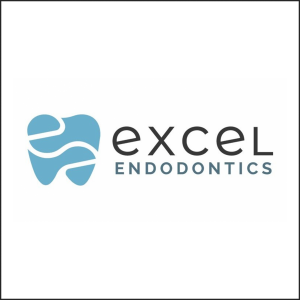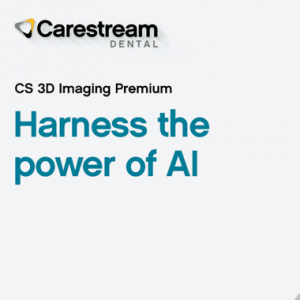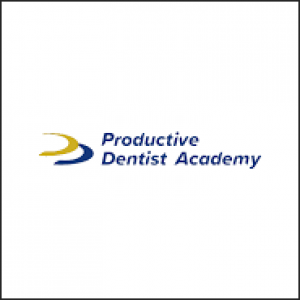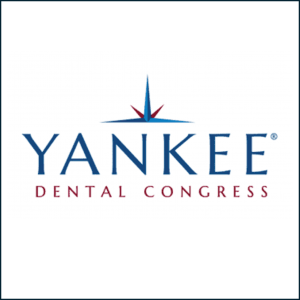
Antibiotics in Endodontics: When are they necessary?
Simona Chirico
The overuse of antibiotics and the emergence of antibiotic resistant bacterial strains is a global concern. As dentists prescribe approximately 10% of antibiotics dispensed in primary care, it is important not to underestimate the potential contribution of the dental profession to the development of antibiotic resistant bacteria.
A review published in the “International Endodontic Journal” analyzed the current literature on the indications and use of antibiotics and made recommendations for their prescription in endodontic patients.
WHICH ANTIBIOTICS ARE USED IN ENDODONTICS?
In dentistry, antibiotic prescription is empirical because the dentist does not know what microorganisms are responsible for the infection, as samples from the root canal or periapical region are not commonly taken and analysed. The most widely used antibiotic in the endodontics is amoxicillin, due to its sufficiently wide spectrum, greater antibacteria effectiveness, low incidence of resistance, pharmacokinetic profile, tolerance and dosage. The other antibiotics used in case of odontogenic infections are shown in table 1, with the corresponding dosage.
SYSTEMATIC USE OF ANTIBIOTICS IN ENDODONTIC INFECTIONS
As shown in table 2, antibiotics are unnecessary in case of: irreversible pulpitis, necrotic pulps and localized acute apical abscesses, because of abscence of blood circulation, antibiotics can’t reach the area.
Instead, they are necessary in case of: acute apical abscess, progressive and persistent infection.
In particular, in case of abscess with systemic involvement, first of all it’s necessary an incision for drainage and than the sub-ministration of antibiotics to avoid the spread of transudate and exudate via interstitial and tissue spaces.
SYSTEMIC ANTIBIOTIC USE IN THE TREATMENT OF TRAUMATIC INJURIES OF THE TEETH
As shown in table 3, the use of antibiotics is indicated only in the case of replantation of avulsed teeth, because positive effects have been shown in periodontal and pulpal healing in experimental studies, specifically using topical application.
In other cases there is no scientific evidence of benefits from these.
TOPICAL ANTIBIOTICS USE IN ENDO
DONTICS
The use of topical antibiotics has been proposed for several endodontic treatments, such as: pulp cupping, root canal treatment, regenerative endodontic procedures, tooth avulsion.
- Pulp cupping: there is no scientific evidence to support the use of antibiotics . On the contrary, MTA or other calcium silicate-based materials should be used once the cause of the disease has been addressed.
- Root canal treatment: antibiotics do not reduce the pain or swelling arising from teeth with symptomatic apical pathosis. In addition to limited antimicrobial activity tetracyclines cause discolouration of teeth when used as a medicament in root canals. In conclusion, is not supported by the evidence and it offers no advantage over conventional calcium hydroxide root canal dressing
- Regenerative endodontic procedures: It is defined as biologically based procedures designed to replace damaged structures, including dentine and root structures, as well as cells of the pulp–dentine complex. The antibiotic mixture composed of ciprofloxacin, metronidazole and minocycline (100 lg mL of each antibiotic, 300 lg mL of mixture) known as triple antibiotic paste (TAP) or ‘3mix’ has to date been the most widely used intracanal medicament in REPs. The use of this antibiotic mix causes dentine discoloration. For this reason, the recent review and ESE position statement on revitalization procedures advocate the use of calcium hydroxide instead of antibiotics to avoid this problem.
- Tooth avulsion: the use of topical antibiotics has been reported to be more beneficial compared with systemic antibiotics in avulsion cases. They can control infections and reduce the risk of inflammatory resorption. The IADT guidelines ((http://dentaltraumaguide.org/) indicate that topical application of tetracyclines (minocycline or doxycycline, 1 mg per 20 mL of saline for 5 min) onto the root surface before reimplantation appears experimentally to have a beneficial effect, increasing the chance of pulpal space revascularization and periodontal healing in avulsed immature teeth with open apices.
For all these reasons, the use of systemic and topical antibiotics should be limited to these specific cases.
For additional information:
Antibiotics in Endodontics: a review. Segura-Egea JJ, Gould K, Şen BH, Jonasson P, Cotti E, Mazzoni A, Sunay H, Tjäderhane L, Dummer PMH. Int Endod J. 2017 Dec;50(12):1169-1184. doi: 10.1111/iej.12741. Epub 2017 Jan 16.
 Related articles
Related articles
News 03 October 2025
Excel Endodontics, a new specialty dental practice founded by endodontist Dr. Rachel Halpern, is proud to announce its official opening in Marlboro, New Jersey, along with the launch of its new...
Endodontics 01 October 2025
Obliteration of the root canal system due to accelerated dentinogenesis and dystrophic calcification can challenge the achievement of root canal treatment goals.
Products 17 September 2025
Modern Micro Endodontics is pleased to announce the opening of its newest location at 356 Broadway in Bayonne, New Jersey. This expansion strengthens the practice’s.
A new dual-cured resin sealer has recently been proposed as an innovative endodontic filling material.
News 04 September 2025
Forest Lake Endodontics in Forest Lake, Minnesota, announced today that endodontist Dr. Linda Liu has joined its team, bringing advanced training in root canal treatment and a strong commitment to...
 Read more
Read more
Oral pathology 24 October 2025
Isolation and characterization of dental pulp stem cells from a supernumerary tooth
Dental pulp stem cells (DPSCs) were primarily derived from the pulp tissues of primary incisors and permanent third molar teeth, whereas no report to our knowledge has yet been documented on deriving...
Editorials 24 October 2025
From mentoring workshops to leadership insights, the last week’s IU School of Dentistry (IUSD) fall faculty conference and staff retreat brought faculty and staff together respectively for two days...
Products 24 October 2025
At the American Academy of Periodontology’s Annual Meeting, Carestream Dental continues to deliver what’s next in dentistry with the launch of CS 3D.
News 24 October 2025
As dental professionals prepare to wrap up 2025, many are setting ambitious goals for the year ahead, yet few have a clear, actionable plan to achieve them.
News 24 October 2025
The Yankee Dental Congress will take place from January 29, 2026, through January 31, 2026, at the Thomas M. Menino Convention & Exhibition Center in Boston.


















